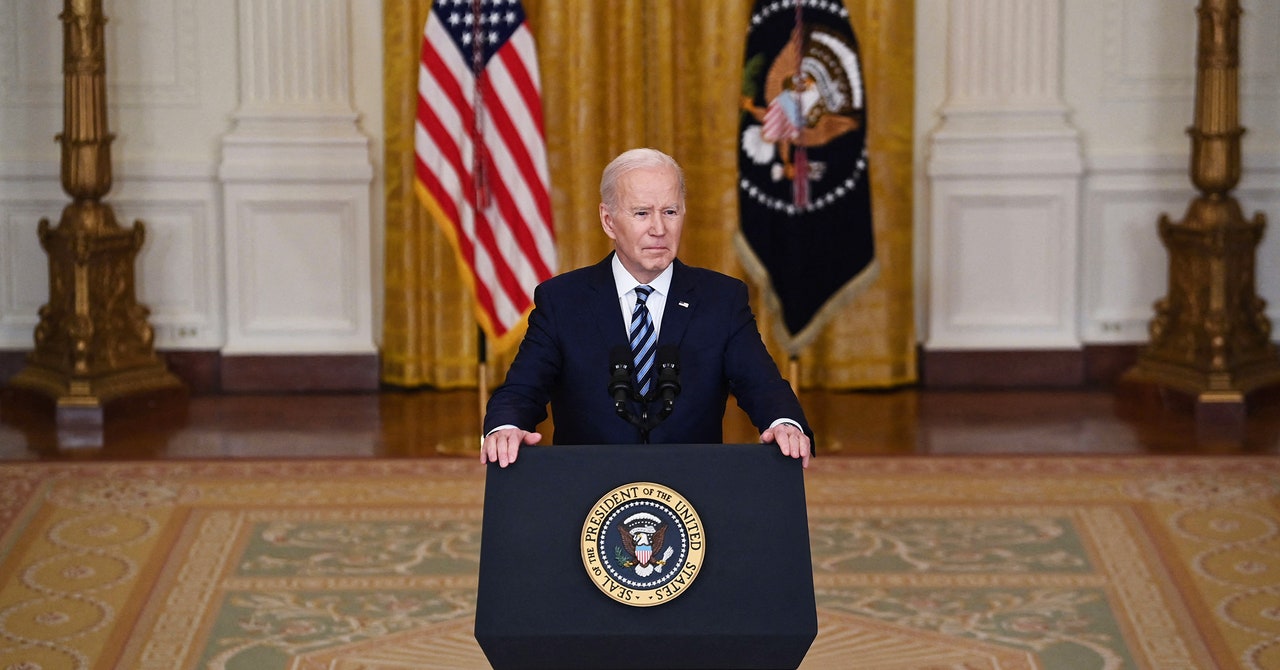Last November, the tech giant Yandex unveiled Chervonenkis, Russia’s most powerful supercomputer and the 19th most powerful commercial computer in the world. Chervonenkis, which uses Yandex to train artificial intelligence algorithms for applications such as web search and translation, was built by linking together more than 1,500 chips from US company Nvidia.
Earlier this week, Russia’s interior ministry said it was having trouble sourcing the necessary chips homegrown and was considering returning to chips from Intel as a result, according to CNews, a Russian outlet.
Russia’s reliance on Western technology, especially for chips, is at the heart of sanctions announced Thursday by US President Biden and allies in response to Russia’s invasion of Ukraine.
Biden said in a speech to the nation that restrictions on Russia’s imports of key technology, including semiconductors, would undermine its “access to finance and technology for strategic areas of its economy and erode its industrial capacity for years to come.” He said the sanctions would damage Russia’s ability to modernize its military, its space industry and its space program and would be a “major blow to Putin’s long-term strategic ambitions”.
Also Thursday, the Commerce Department banned US companies from trading with 49 Russian entities associated with that country’s military and said allies would follow suit. The new rules cover microelectronics, telecommunications equipment, sensors, avionics, navigation and marine equipment, the department said.
“Russian industry in general has benefited from the relatively open trade flow of microelectronics, semiconductors and other high-tech components,” said Samuel Bendett, a Russian technology expert at CNA, a military think tank. “In fact, this could have a very significant effect.”
For nearly a decade, the Kremlin has implemented measures to rid Russian companies and infrastructure of foreign technology, including advanced chips. So far, the attempt has had limited success.
The US strategy reflects recent efforts to curb China and its tech companies. In 2020, the White House imposed restrictions on chips exports to Chinese companies, including Huawei, which it accused of espionage, and several large AI companies that it said helped government monitor Muslim minorities. The chip sanctions have certainly damaged Huawei, which has damaged its smartphone operations. They have also sparked an ambitious but challenging effort by the Chinese government to build a semiconductor industry capable of producing advanced components on its own.
Chip sanctions could do less direct damage to Russia. But a ban could also be less damaging to US, European and Japanese chip makers. According to the World Semiconductor Trade Statistics (WSTS), Russia is responsible for less than 0.1 percent of global chip purchases.
“While the impact of the new rules on Russia could be significant, Russia is not a significant direct consumer of semiconductors,” said John Neuffer, CEO of the Semiconductor Industry Association, a body that represents US chip companies.
Raids on critical technologies, such as semiconductors, could still hurt Russia’s progress and its military and cyber capabilities. And with the US and allies, including the EU and Japan on board, it will prove more difficult for Russia to circumvent sanctions.

